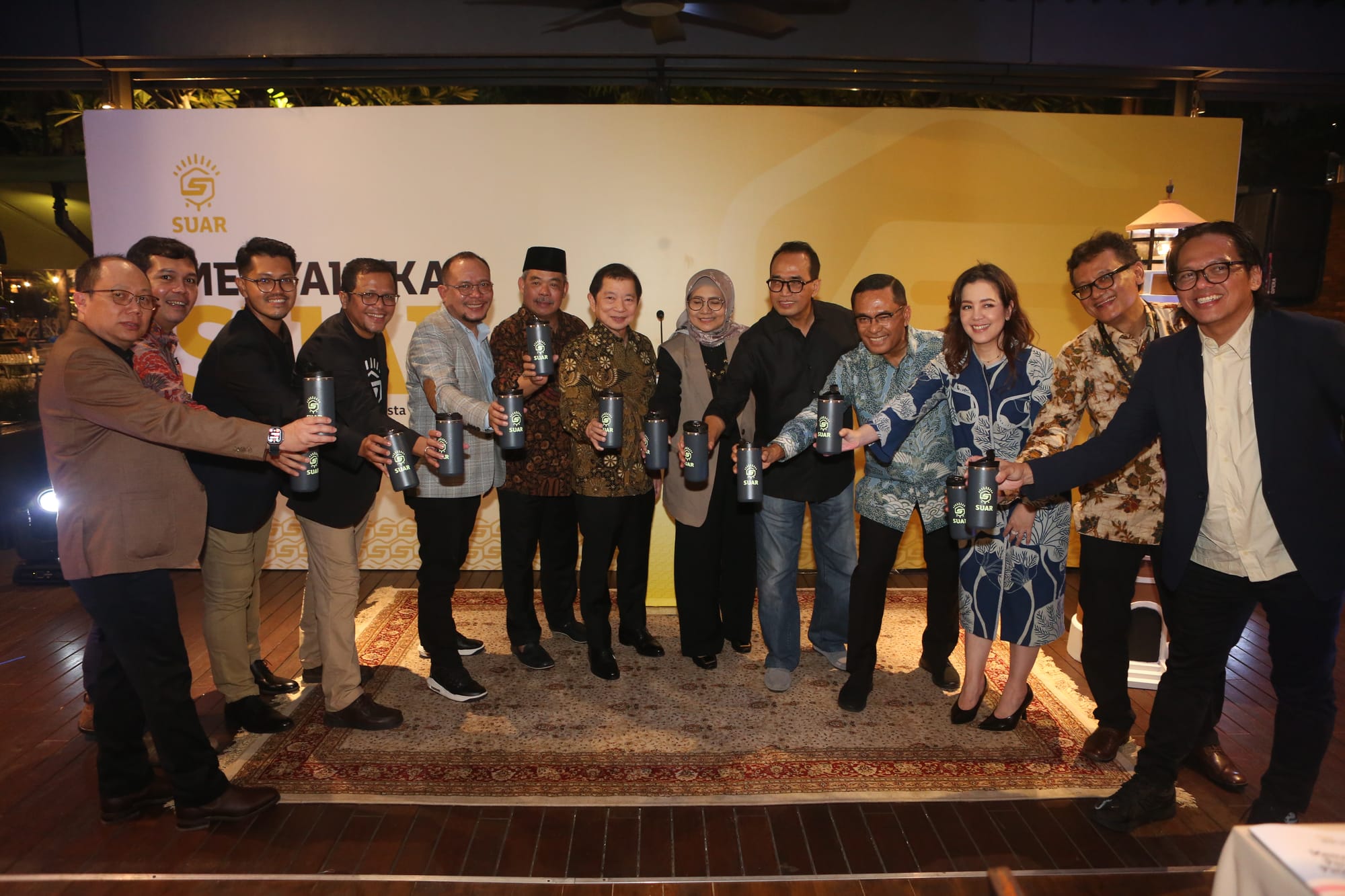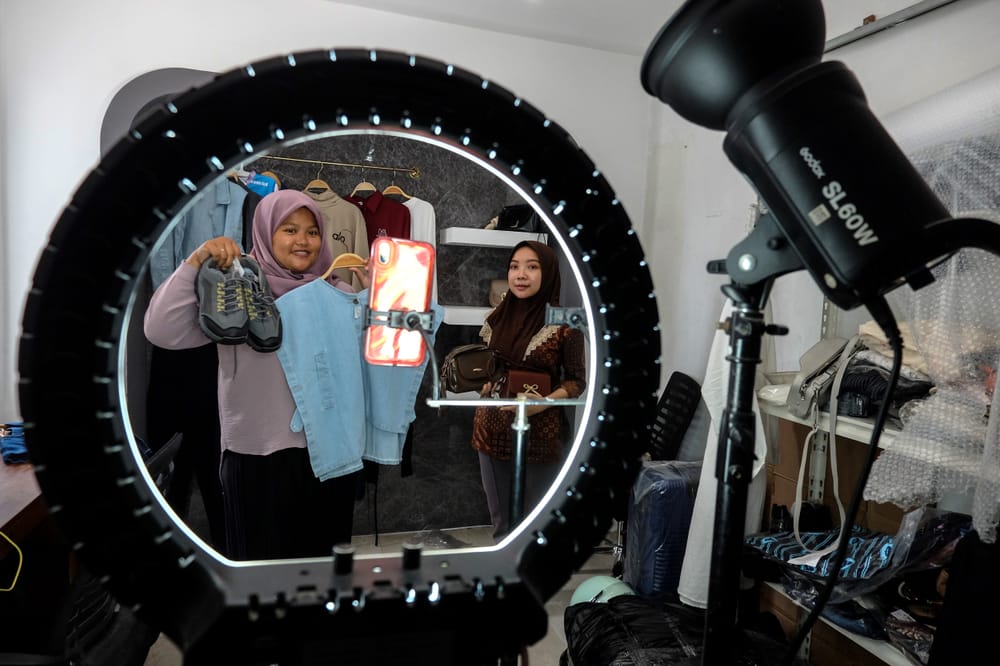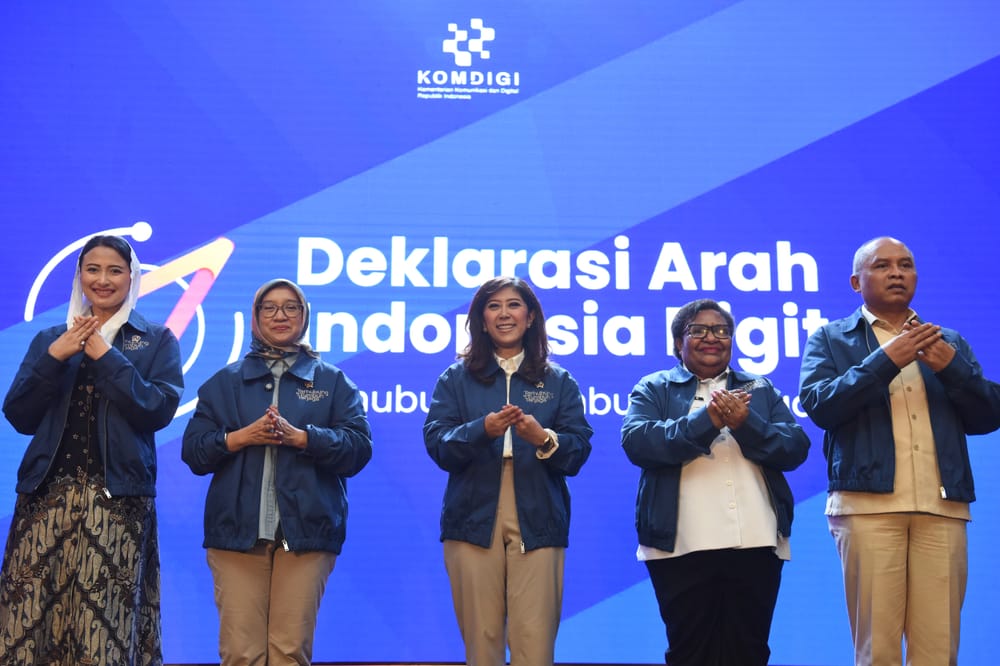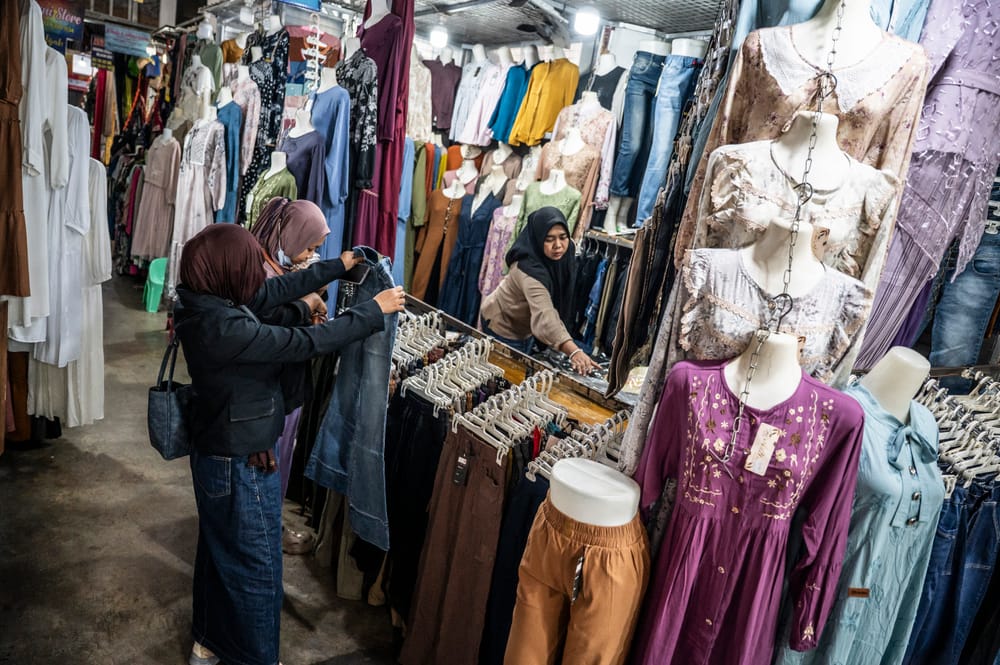Indonesia's aspiration for an advanced economy and prosperous society can be realized if its business world is also advanced and sustainable. This can be achieved through efforts that can be realized in various ways: deregulation of rules & bureaucracy, as well as legal & regulatory certainty. Of course, the most important thing is close collaboration among all stakeholders, starting from the business world, government, intellectuals, and mass media.
This became the common thread in the SUAR media launch event in the Urban Forest by Plataran Senayan, Jakarta, Thursday (21/8/2025). Present to give opening remarks were Coordinating Minister for Economic Affairs Airlangga Hartarto, Deputy Chairman of Commission XI of the House of Representatives Hanif Dhakiri, Minister of National Development Planning / Head of the National Development Planning Agency (Bappenas) 2019-2024 Suharso Monoarfa.
Also present to give welcoming remarks were the General Chairman of the Indonesian Employers' Association (Apindo) Shinta Widjaja Kamdani, Vice President Director of PT Triputra Agro Persada Tbk Budiarto Abadi, and Chairman of the Press Council Komaruddin Hidayat. Also present were the Indonesian Ambassador to Singapore Suryopratomo, Chairman of the Association of Regency Governments Throughout Indonesia (Apkasi) Bursah Zarnubi, senior economist Hendri Saparini, and national thinker Yudi Latif.
Also present as invitees were a number of special guests, including former ministers, seasoned entrepreneurs, company executives, editors-in-chief, and academics.
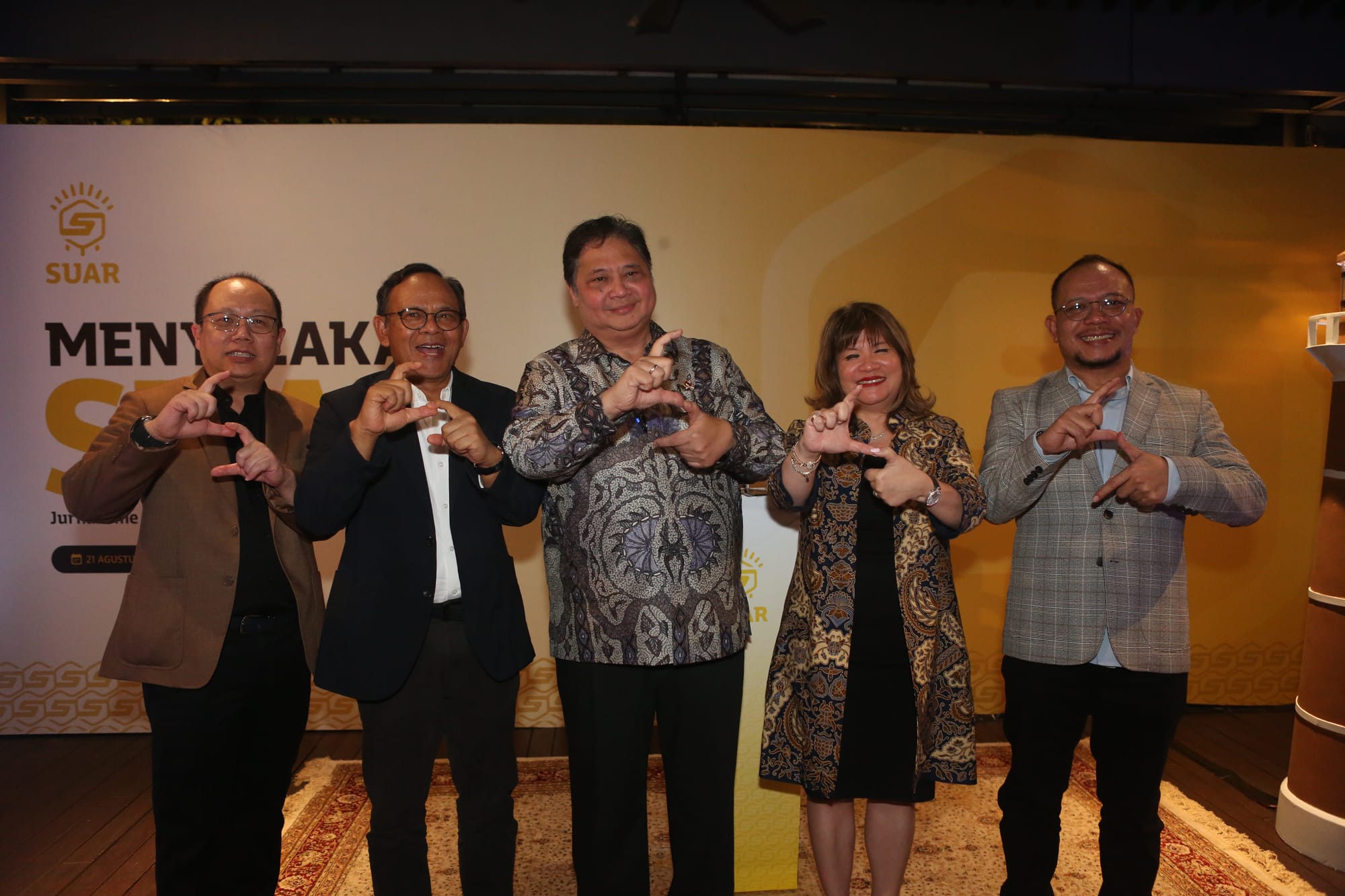
Coordinating Minister for Economic Affairs Airlangga Hartarto said that the business world has a central role in maintaining the direction of the Indonesian economy amidst global turmoil. He emphasized that without a strong voice from business actors, national productivity can easily be eroded by uncertainty.
"The business world often loses its voice when the direction of the economy changes so quickly and is difficult to predict," he said at the launch of SUAR media, Thursday (8/21/2025).
Airlangga emphasized that the direction of Indonesia's economic development still shows optimism. He mentioned that economic growth of 5.12% in the past year has created new jobs for around 1.4 million people.
Chairman of the Indonesian Employers' Association (Apindo), Shinta Kamdani, stated that economic growth is not only assessed based on figures but also on the confidence of the business world.
The role of the business world in economic growth encompasses three aspects: the business world as an engine of collaboration, an engine of transformation, and an engine of trust.
As an engine of collaboration, the business world can collaborate with the government, such as in the development of national strategic projects. Regarding its role as an engine of transformation, the business world can diversify markets to boost exports; many markets remain unexplored, such as the African continent. Additionally, the business world must update its export commodities and not rely solely on the same commodities.
Lastly, as an engine of trust, the business world can be a partner in providing solutions for the government.
"The business world is ready to move forward with the government to encourage quality economic growth," she said.
Support for political will and regulations
The Indonesian Ambassador to Singapore, Suryopratomo, emphasized the significant contribution of the business world to a country's progress. His diplomatic post serves as a valuable example.
"From a country without resources and a per capita income of US$300 in 1965, a reliable business world has transformed Singapore into a country with one of the highest per capita incomes in the world, reaching US$100,000," Suryopratomo said in his speech on Thursday (August 21, 2025).
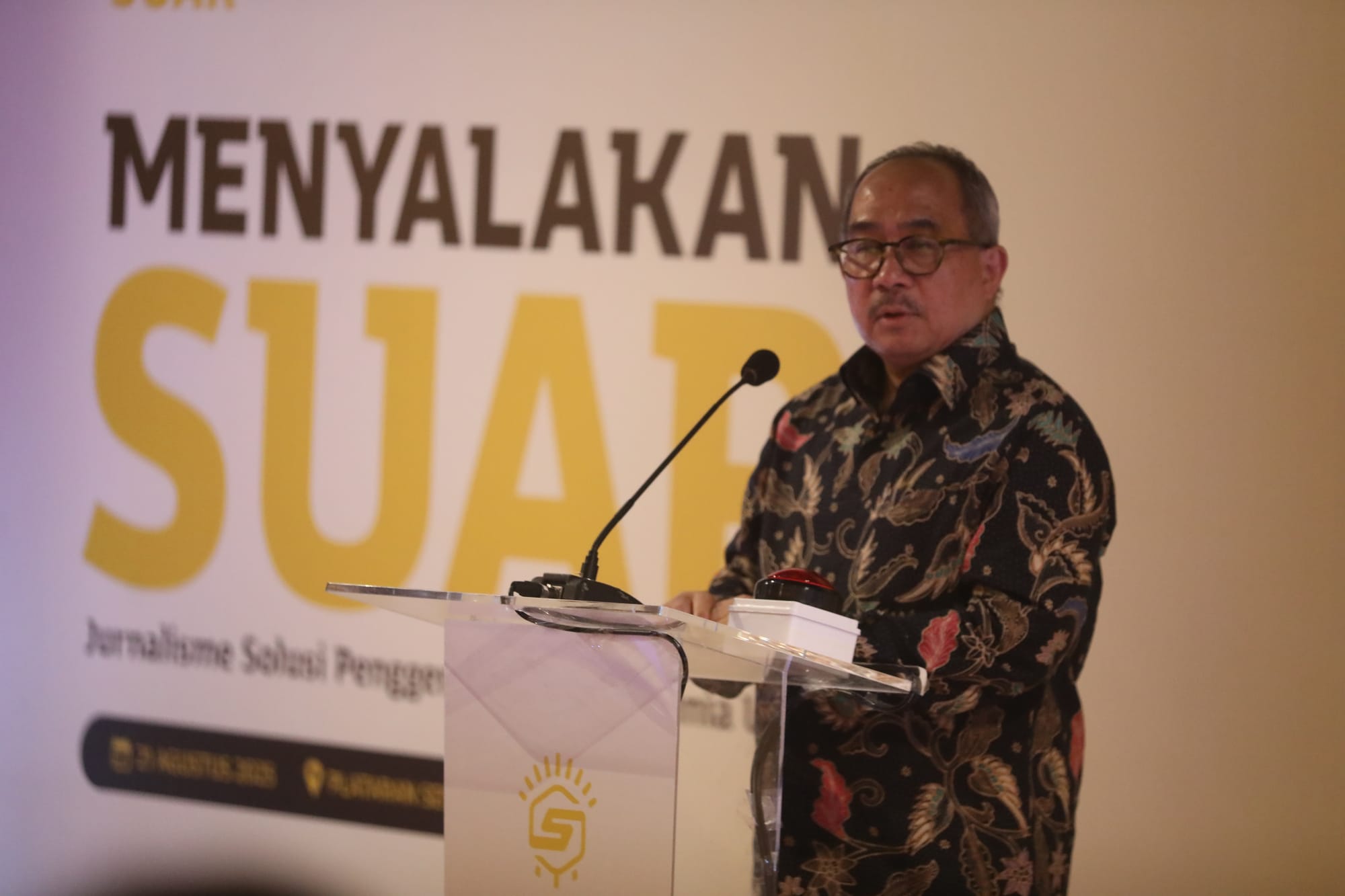
According to him, this contribution only occurs because of the government's role in placing and giving high appreciation to the business world. He illustrated that if a business association holds an event, the minister or prime minister almost always makes time to attend as a form of support for the business world.
"Their presence sends a message: 'Tell us what we need to do to make you bigger. The bigger your business, the bigger our income,'" said Tommy, Suryopratomo's nickname.
Despite this close relationship and strong support, the government sets clear rules and guarantees the integrity of officials who will only be elected if they can prove their competence. "With such clear rules, when there is a bribery case, the government already knows who to go after," he revealed.
Senior economist and founder of the Center of Reform on Economics (CORE) Indonesia, Hendri Saparini, emphasized that politics should not only be narrowly interpreted as stability that guarantees the business world operates stably, but as a policy to manage society as a whole.
"Currently, the only certainty is uncertainty. For example, if we talk about agriculture, as the President emphasizes, then we must know who is doing the production and whether they will carry out downstreaming like the mining sector, or do we have other policy concepts that promote inclusivity?" Hendri said in his speech.
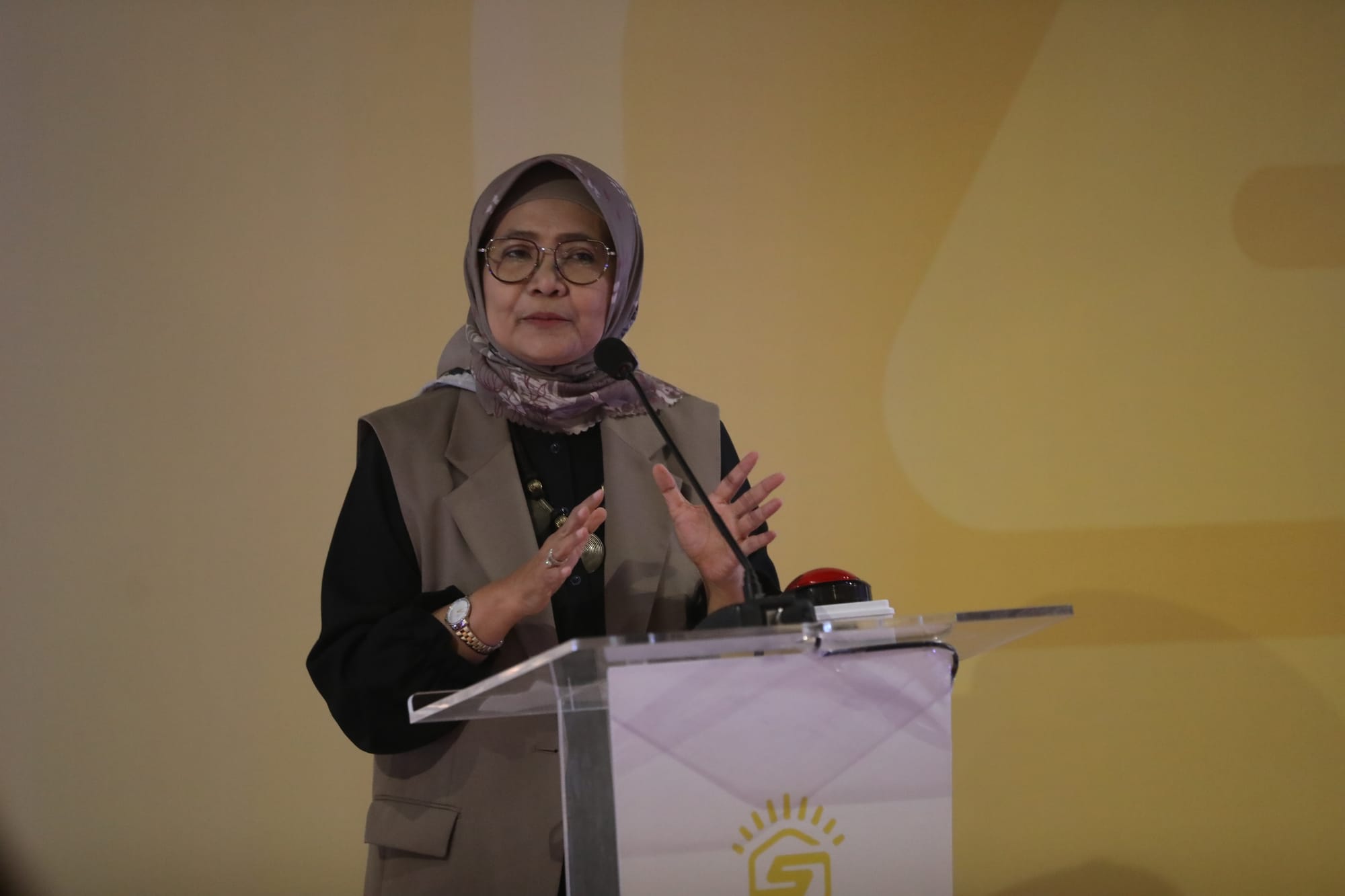
According to him, viewing politics broadly will provide a clear direction amidst uncertainty. He exemplified that instead of being burdened by Trump's tariff policies, the Indonesian business world can see Indonesia's non‐tariffs measure policies as an opportunity to expand markets outside the United States.
"From there, we will see what our fiscal policies are like, how the government spends the state budget, and reflect on its impact on the business world," he added.
Collaboration of all parties
Meanwhile, Deputy Chairman of Commission XI of the Indonesian House of Representatives (DPR RI), Hanif Dhakiri, emphasized the importance of collaboration between the government, the DPR, the business world, academics, and civil society to realize better and higher quality economic growth.
According to him, although macro data shows positive developments, challenges on the ground, especially regarding employment, must remain a primary concern.
"Economic growth is also measured based on job creation. So, what do the numbers matter? If people have difficulty finding work, it will definitely be considered unsuccessful," he said.
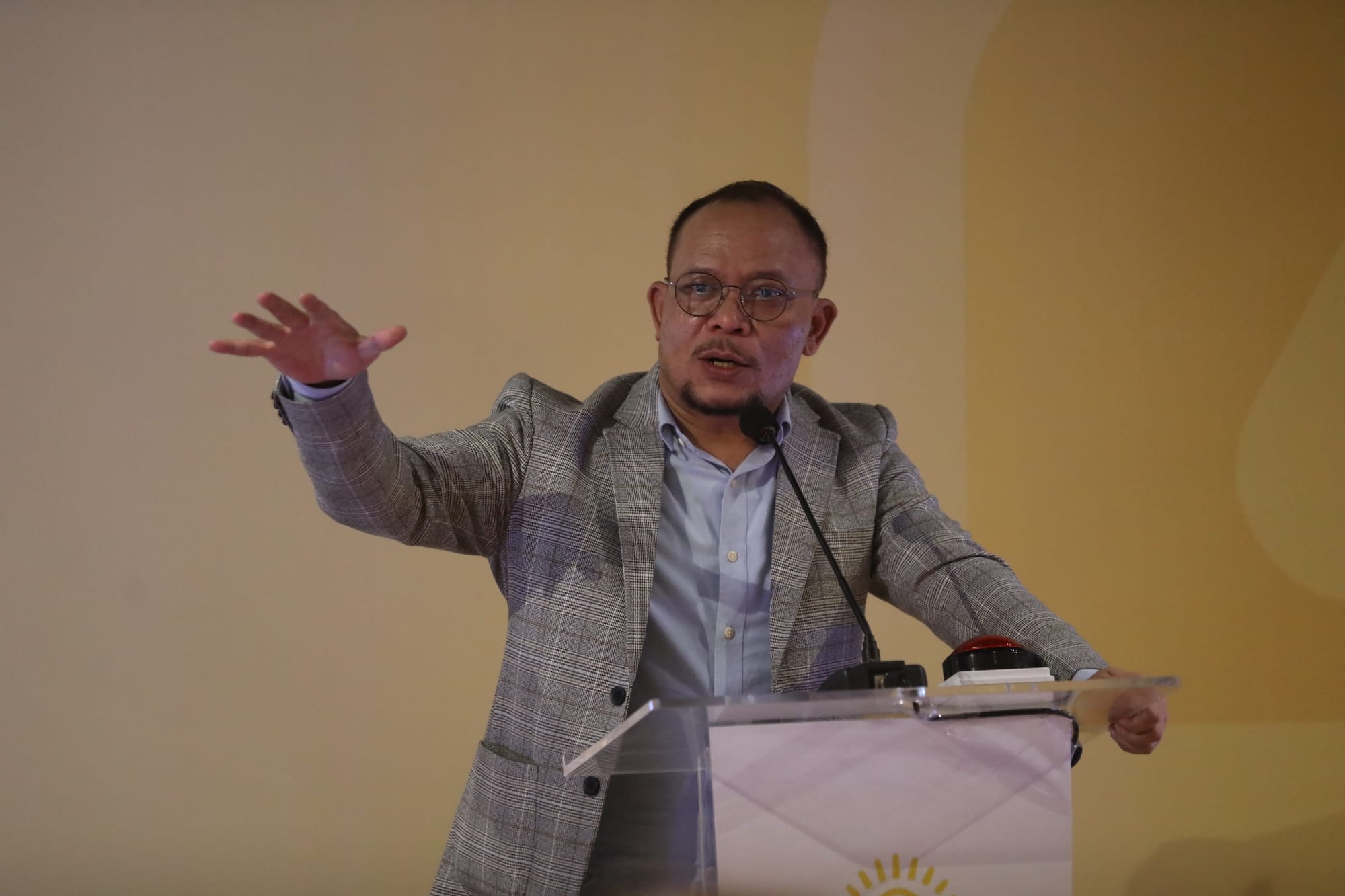
He also highlighted that investing in Indonesia is still costly, and this needs to be improved so that investment can contribute more to economic growth.
As a member of the DPR RI, he affirmed that he would oversee and ensure what becomes the government's target and create regulations to facilitate business activities.
"Every rupiah that comes out of the state budget must truly be able to create productivity, jobs, and maintain people's purchasing power," he concluded.
Chairman of the Association of Regency Governments Throughout Indonesia (APKASI), Bursah Zarnubi, explained that the role of regency governments is crucial in the Indonesian economy. "60% of our national strength is in the regencies," he said, emphasizing the significant contribution from the regions.
He supports the role of the media in providing information regarding the potential and strategies of the regency government in improving the economy of communities throughout Indonesia.
In addition, he emphasized the importance of strengthening human resources through quality education as the foundation for economic progress.
"The foundation for building Indonesia is, first, through human resources that are physically and mentally healthy, as well as mastering science and technology," he explained.
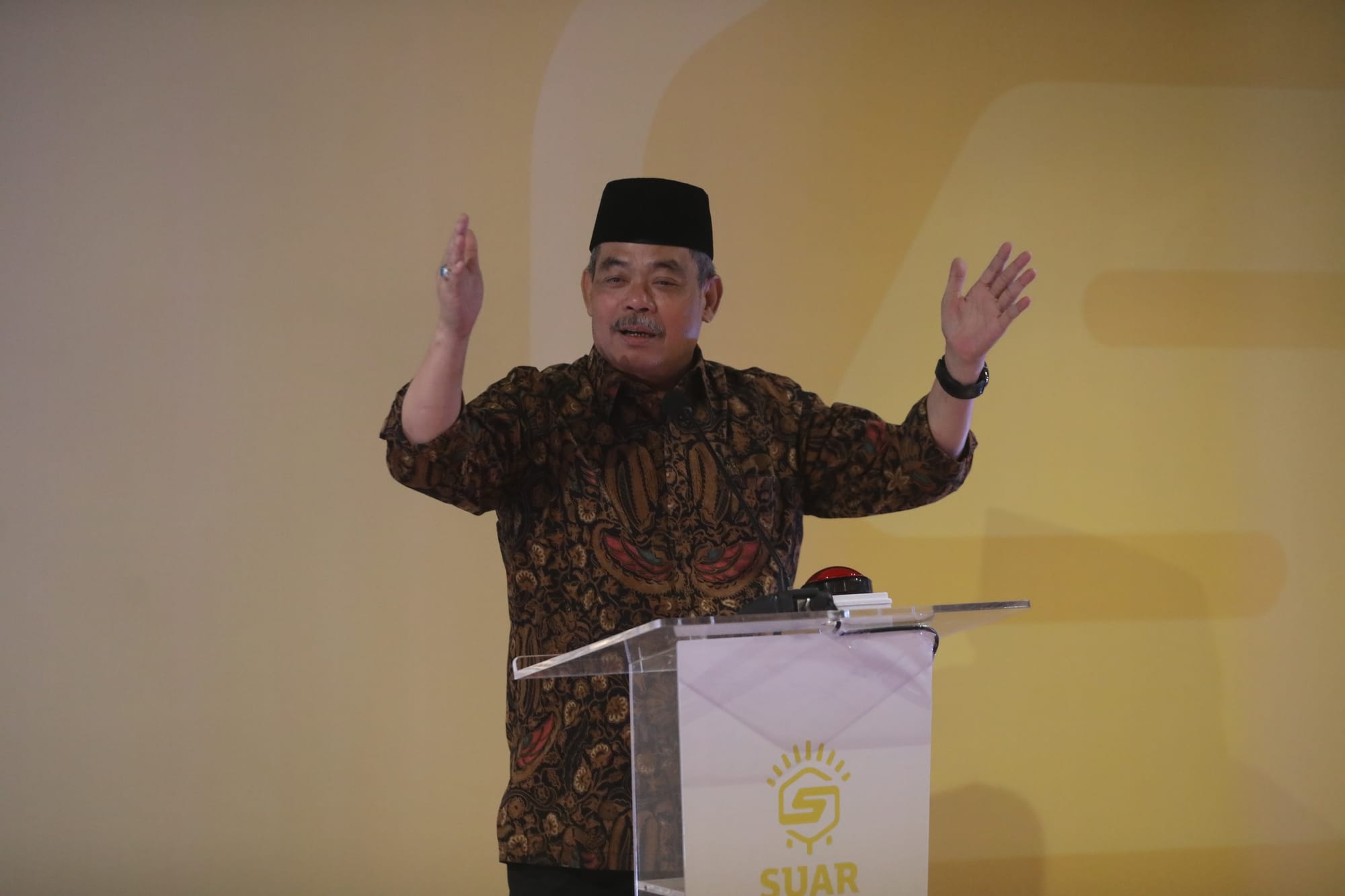
Vice President Director of PT Triputra Agro Persada Group, Budiarto Abadi, emphasized the important role of the media in maintaining interaction between the public and the government. He described the media as a two-way bridge connecting public interests with policymakers. "If we wrap it all up, it becomes like an interactive public communication ecosystem," he said.
According to him, the government as a policymaker needs to build optimism and certainty for the business world to move forward. However, he believes that the practice is quite the opposite.
"The business world is often faced with fear and doubt," he said. Meanwhile, the government, which needs public support, faces challenges in the form of miscommunication.
This happens because of the major changes brought by social media in the flow of information. If previously conventional media functioned as a filter, now with social media, anyone can become an information disseminator without a filter.
"This condition makes hoaxes easily spread and have a negative impact on the public and the business world," he said.
In that situation, he believes the media has an increasingly strategic role. The media is considered capable of creating healthy communication and ensuring that interactions between the public, the business world, and the government run positively. With this, the media can become a collaborator that presents solutions, while also adding color to the progress of journalism in Indonesia.
Editor-in-Chief of SUAR Sutta Dharmasaputra agreed, close collaboration between stakeholders is key to encouraging the business world and the country's economy. Here, SUAR carries a different vision from most mainstream media.
"When many voices slowly disappear, SUAR actually wants to be a place for voices that need to be heard—especially from business actors, communities, and independent thinkers," said Sutta in his speech.
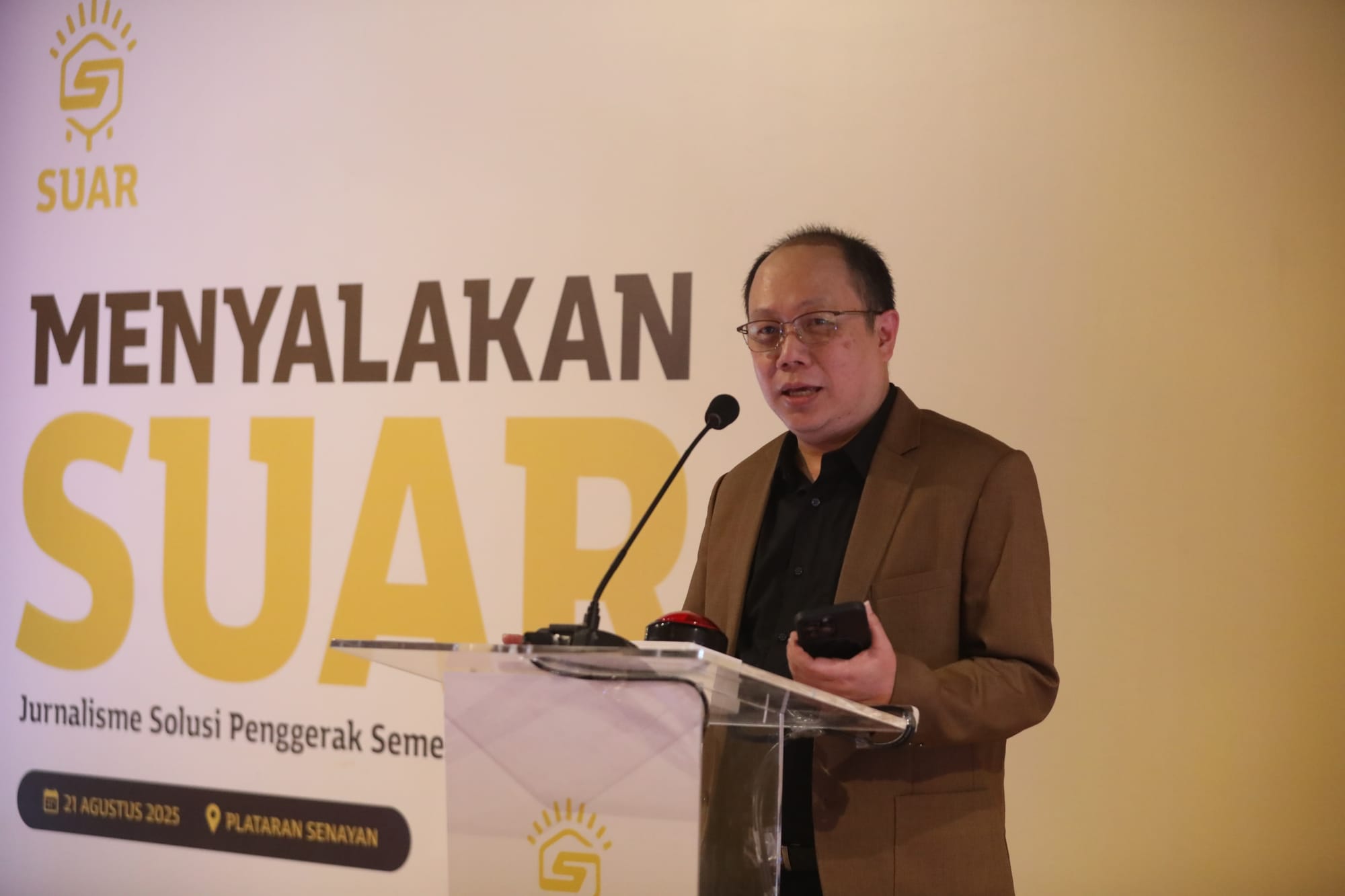
Amid the rapid flow of information and the increasing threat of global misinformation, a new media initiative was born to answer these challenges. Carrying the name SUAR, this media is present with a vision to illuminate the path of business actors through relevant, in-depth, and solution-oriented information.
"We present real ways, strategies, and inspiration that can be applied by business actors from various levels, from UMKM to established companies," said Sutta.

